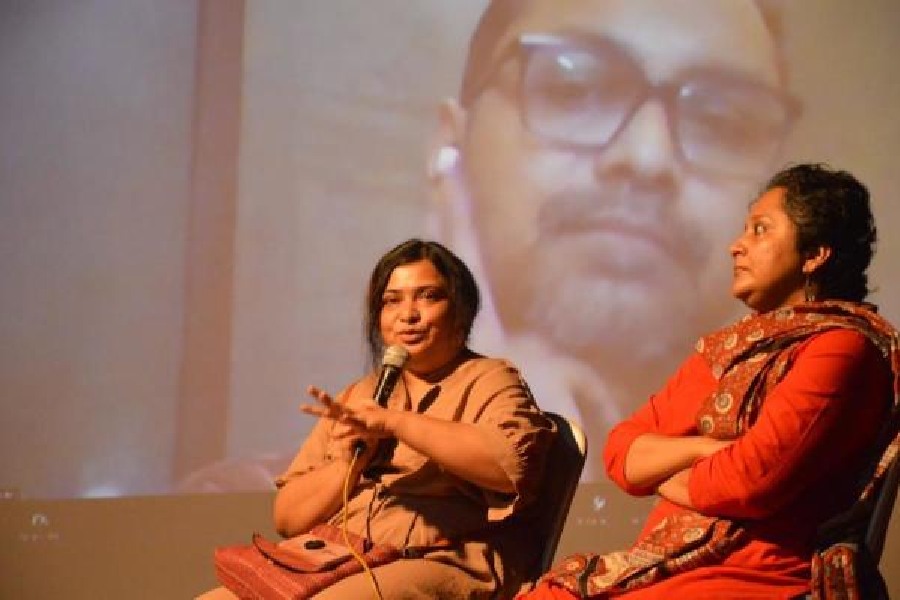Gandhiji gave us two weapons to fight this war, non-violence and peaceful resistance. We must use only these two methods…. Those who use violence know that they are fighting against the truth. Those with truth on their side, never need to use violence.
A documentary on Umar Khalid, JNU scholar, activist, and an alleged mastermind of the 2020 Delhi riots, ends with these lines, part of a speech that he delivered at a rally against the CAA-NRC combine.
A documentary on Khalid — Prisoner No. 626710 is Present, made by Lalit Valchani — was screened at an auditorium in south Calcutta to mark the fourth anniversary of his arrest.
Khalid, Sharjeel Imam, Gulshifa Fatima and several others have been booked under the anti-terror law UAPA for allegedly being the “masterminds” of the February 2020 Delhi riots, which left 53 people dead and over 700 injured.
They are still in jail, despite the Supreme Court iterating in several cases that “bail is the rule and jail an exception”.
The Delhi violence had erupted during the protests against the Citizenship (Amendment) Act (CAA) and the National Register of Citizens (NRC).
Through Khalid’s speeches and statements, the documentary punches holes in the logic of the prosecution. The film covers Khalid’s role in the 2016 JNU sedition case, the citizenship stir in Jamia Millia Islamia and Shaheen Bagh, and the riots.
Khalid is seen exhorting people to use Gandhian means to oppose the new citizenship laws which sparked fears of disenfranchisement of mostly Muslim citizens of India.
Multiple leaders of the BJP and the saffron ecosystem, accused of making inflammatory speeches, even urging people “to shoot traitors”, are roaming free.
The programme in Calcutta, titled Caged For Dissent, was organised by the People’s Film Collective. The screening was followed by a conversation between Khalid’s friends and comrades at JNU, Banojyotsna Lahiri and AnirbanBhattacharya, and Kasturi Basu, one of the founders of the collective.
The hundreds of books Khalid has read in jail and later sent out now cover the walls of his friend Lahiri’s Delhi home. Lahiri visits Khalid in jail frequently.
On Sunday, Basu asked Lahiri about Khalid and his co-prisoners’ time in prison.
“They are surviving. Survival is resistance. They come to the court smiling. Their courage is infectious,” said Lahiri.
A man in the audience at Sujata Sadan in Hazra, a 350-seat hall packed to the hilt, asked Lahiri: “It is heartening to see so many people turning up here. What do you expect of these people?”
Lahiri said like Calcutta, the film was being screened at several cities where the shows have been house full.
“Implicating people like Umar in the Delhi riots was a bid to silence us all. When you are coming to see this movie, it is an expression of solidarity. It is also saying that we are not going to get silenced. That means a lot,” she said.
Bhattacharya, who joined virtually, spoke of a contribution that Shaheen Bagh and several other vigils against the new citizenship regime have made to mainstream politics.
“Allegiance to the Constitution was the focal point of the movement. It started from Shaheen Bagh. The Constitution was the mainstay of their resistance, their fight. In the last general election, we saw the Opposition banking on the Constitution. It was heartening to see,” he said.
The speakers stressed the need to build pressure on political parties to campaign to do away with draconian laws like the UAPA.











